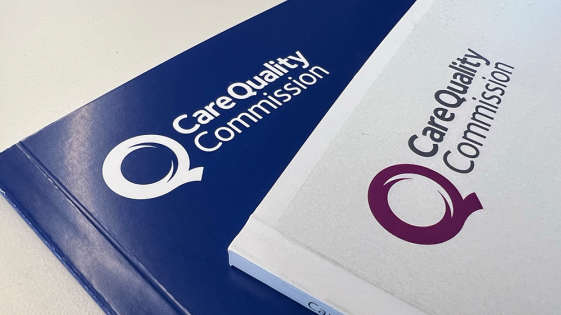
The Care Quality Commission (CQC), has rated Cheshire West and Chester Council as good, in how well they are meeting their responsibilities to ensure people have access to adult social care and support under the Care Act (2014).
CQC has a new duty under the Act to assess how local authorities work with their communities and partners to meet their responsibilities. This includes promoting the wellbeing and independence of working age disabled adults, older people, and their unpaid carers to reduce their need for formal support where appropriate. Where support is needed it should provide people with choice and control of how their care needs are met.
CQC looked at nine areas spread across four themes to assess how well the authority is meeting their responsibilities in order to create their good rating. CQC has given each of these nine areas a score out of four with one being the evidence shows significant shortfalls, and four showing an exceptional standard.
|
Theme |
Area |
Score |
|
How the local authority works with people |
1. assessing people’s needs |
2 |
|
2. supporting people to lead healthier lives |
3 |
|
|
3. equity in experience and outcomes |
3 |
|
|
Providing support
|
4. care provision, integration and continuity of care |
2 |
|
5. partnership and communities |
2 |
|
|
How the local authority ensures safety in the system |
6. safe pathways, systems and transitions |
2 |
|
7. safeguarding |
3 |
|
|
Leadership |
8. governance, management and sustainability |
3 |
|
9. learning, improvement and innovation |
3 |
James Bullion, CQC’s chief inspector of adult social care and integrated care, said:
“During this inspection, we found Cheshire West and Chester was committed to helping people access support that met their individual needs. The local authority had strong leadership underpinning this, as they maintained a consistent focus on learning and development, which improved people’s experiences of accessing care.
“People told us they had positive experiences when seeking advice or assessments. Staff were professional and dedicated, helping people overcome significant challenges with care and compassion.
“The local authority reduced waiting times in the previous year by introducing new systems and improving their use of data and insights. Staff prioritised urgent cases while people waited, ensuring those with critical needs received prompt support.
“The local authority also offered a range of preventative services to reduce or delay the need for support. These services helped people maintain their independence, combat loneliness, reduce frailty, and promote healthy living. All of which helped to reduce short term support turning into more formal long-term support.
“Unpaid carers raised concerns about challenges in accessing assessments, information and advice. However, the authority had developed an all-age carers strategy that was achieving some early progress, including increased carers assessments.
“Leaders and staff at Cheshire West and Chester should be pleased with the many positive findings in this report. The authority has put plans in place to address areas needing some improvement, and we look forward to seeing their continued progress.”
The assessment team found:
- Staff arranged homecare and reablement services for people without delay, particularly following a hospital stay. People told inspectors staff found innovative ways to meet their needs.
- Cheshire West and Chester teams worked closely together to provide consistent care. They supported young people transitioning into adult services, who had mostly positive experiences of the process.
- Leaders listened to people, took concerns seriously and used feedback to improve services.
- Specialist staff provided tailored support and clear pathways for groups including autistic people, people with learning disabilities or mental health conditions, and people leaving hospital.
- Leaders understood the challenges people in the community faced. The local authority carried out targeted work to improve outcomes for people who experienced poverty and health inequalities.
- Adult social care had been through a transformation process since 2022, and the local authority launched a new strategy in 2024. Staff told inspectors leaders built a positive culture and provided support during this time.
However:
- Staff couldn’t always deliver home adaptations promptly following occupational therapy assessments. However, they provided alternative support to meet people’s needs while they waited for adaptations.
- The authority collaborated closely with some partners to improve people’s experiences, but not all partnerships worked well. Staff told inspectors the authority had strained relationships with some health providers, which sometimes delayed people’s care.
The assessment is now available on CQC’s website.
Scoring key:
- Evidence shows significant shortfalls
- Evidence shows some shortfalls
- Evidence shows a good standard
- Evidence shows an exceptional standard
General demographic information:
- Cheshire West and Chester Council is the fourth largest unitary authority in the Northwest region and covers 350 square miles. A total of 365,061 people live in the area with a higher than average number of people over the age of 65. The population is expected to grow in the next 10 years.
- Cheshire West and Chester has an Index Multiple Deprivation score of 3, with 10 being the most deprived, and is the 113th most deprived local authority out of 153 local authorities (with the 1st being the most deprived). Cheshire West and Chester’s population is predominantly white, with 8.8% identifying themselves as an ethnicity other than white.
- Census data showed that 61.2% of the population are working age adults, and 21.6% are aged 65 and over. Children make up 17.2% of the population. The population of over 65s is expected to rise to 22% by 2033. The percentage of the local population living in the most deprived areas in Cheshire West and Chester is 26.5%.
- Cheshire West and Chester borders the local authority areas of Shropshire to the south, Cheshire East to the east, and Warrington and Halton to the north. The local authority sits within the Cheshire and Merseyside Integrated Care System (ICS) and is one of 9 local authorities in the ICS patch.

 Council uses powers to close shops selling illegal vapes and tobacco products
Council uses powers to close shops selling illegal vapes and tobacco products
 Public consultation on the future of public toilets at Holywell, Mold and Talacre
Public consultation on the future of public toilets at Holywell, Mold and Talacre
 Man jailed for 16 years after being found guilty of rape
Man jailed for 16 years after being found guilty of rape
 Ellesmere Port community projects awarded share of Police and Crime Commissioner’s £150k fund
Ellesmere Port community projects awarded share of Police and Crime Commissioner’s £150k fund
 Chester community projects awarded share of Police and Crime Commissioner’s £150k fund
Chester community projects awarded share of Police and Crime Commissioner’s £150k fund
 Council completes chewing gum cleaning project
Council completes chewing gum cleaning project
 Chester Market celebrates three years of success
Chester Market celebrates three years of success
 Chester and Wirral Football League - Latest Results
Chester and Wirral Football League - Latest Results
 Blues Match Report: Chester FC 1 - 1 Marine
Blues Match Report: Chester FC 1 - 1 Marine
 Wanted man from Ellesmere Port arrested and charged
Wanted man from Ellesmere Port arrested and charged
 'Winter Warmer' initiative for local over 60’s in North Wales
'Winter Warmer' initiative for local over 60’s in North Wales
 Inaugural meeting of the Cheshire and Warrington Combined Authority Shadow Board
Inaugural meeting of the Cheshire and Warrington Combined Authority Shadow Board
 Cheetah brothers arrive at Chester Zoo
Cheetah brothers arrive at Chester Zoo
 Ex-Chester FC star helps create stunning poppy tribute
Ex-Chester FC star helps create stunning poppy tribute
 FREE CHESTER CONCERT SET TO CELEBRATE WORK OF RENOWNED NORTH WEST BASED COMPOSER
FREE CHESTER CONCERT SET TO CELEBRATE WORK OF RENOWNED NORTH WEST BASED COMPOSER
 MUSIC BY RENOWNED WELSH FEMALE COMPOSER TO FEATURE IN WREXHAM ORCHESTRA REMEMBRANCE CONCERT
MUSIC BY RENOWNED WELSH FEMALE COMPOSER TO FEATURE IN WREXHAM ORCHESTRA REMEMBRANCE CONCERT
 Blues Match Report: Cambridge United 3 - 0 Chester FC
Blues Match Report: Cambridge United 3 - 0 Chester FC
 Blues Match Preview: Cambridge United v Chester FC
Blues Match Preview: Cambridge United v Chester FC
 Cheshire Constabulary welcomes its newest four-legged crime fighter ahead of her Police Dog training
Cheshire Constabulary welcomes its newest four-legged crime fighter ahead of her Police Dog training
 Appeal to trace wanted man from Ellesmere Port
Appeal to trace wanted man from Ellesmere Port
Comments
Add a comment